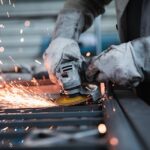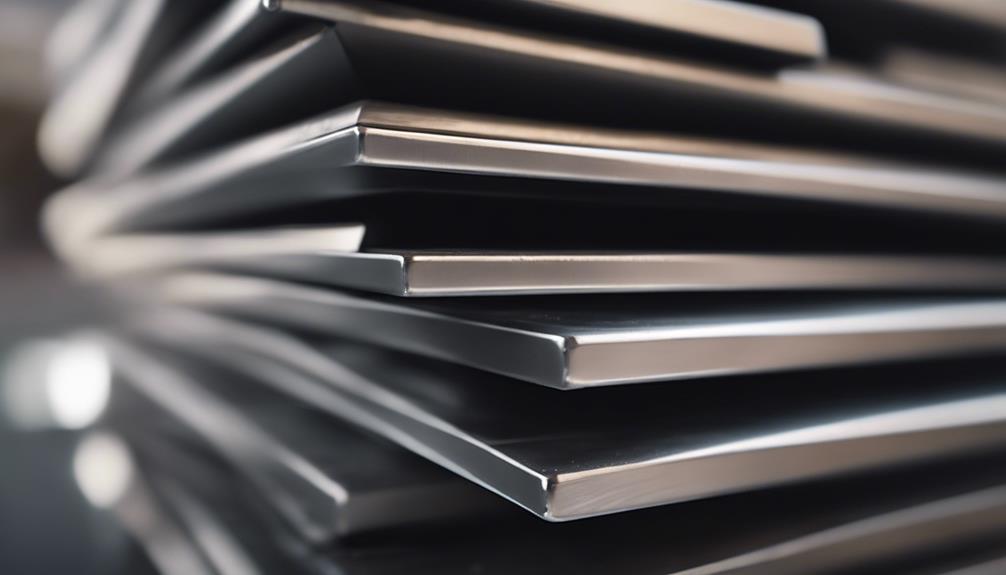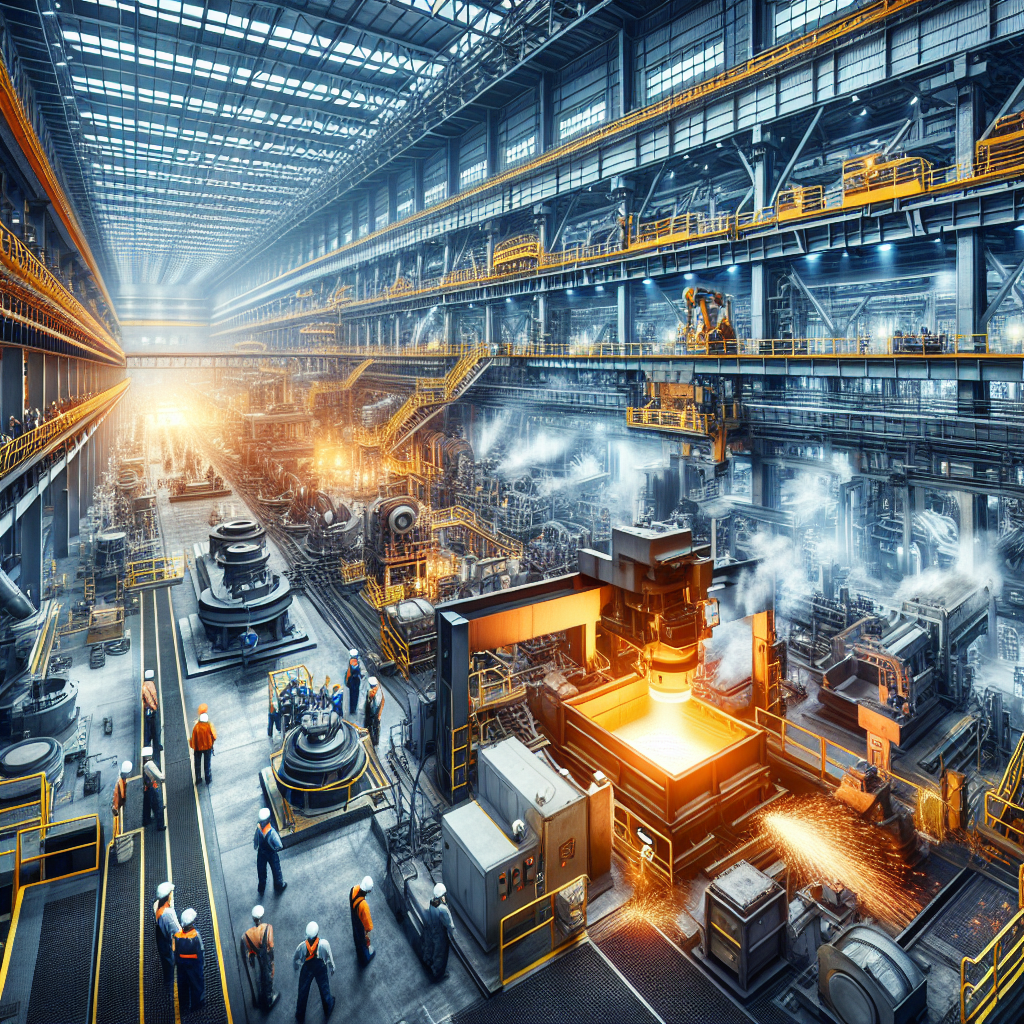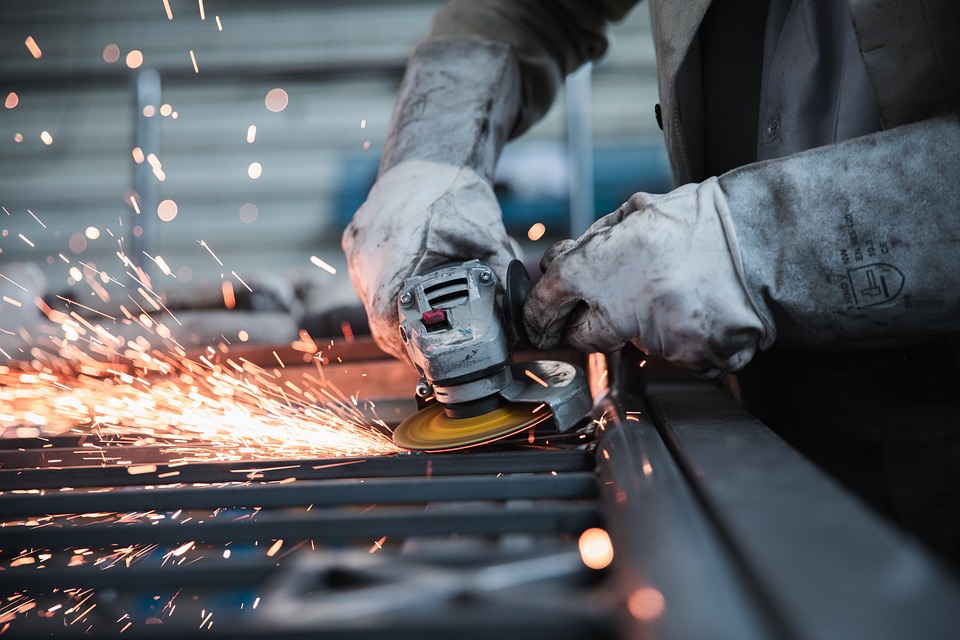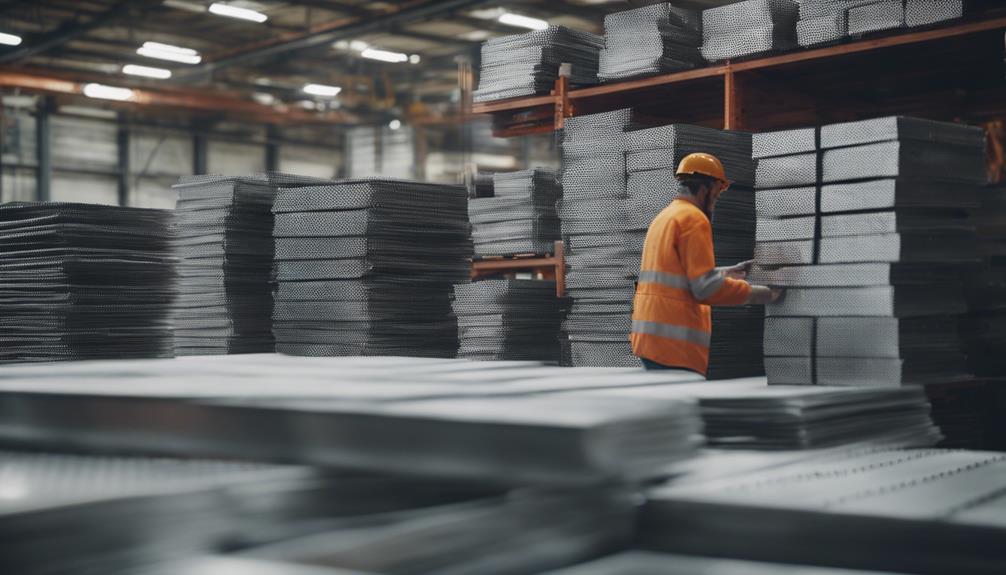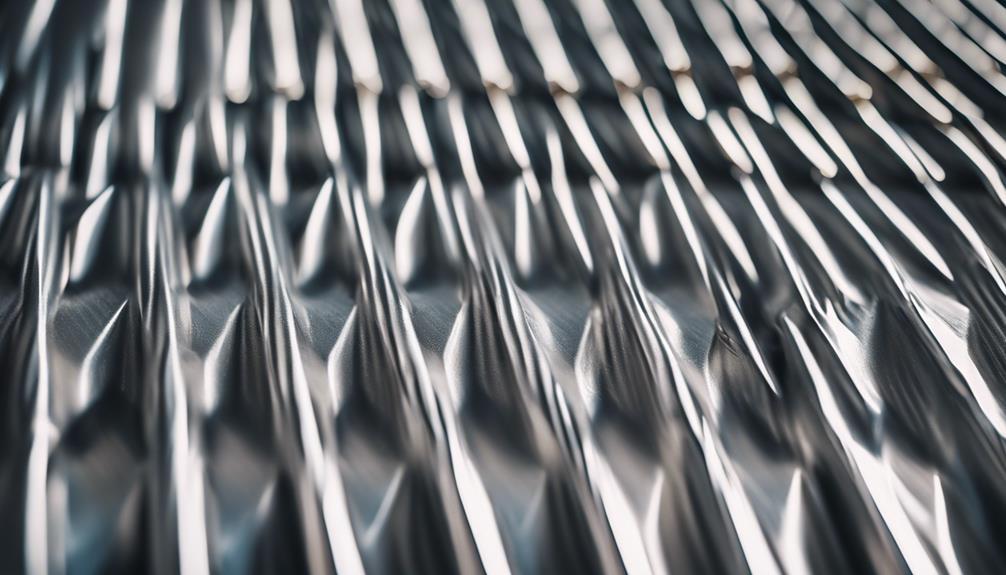Flat bar metal, including steel, aluminum, stainless steel, brass, copper, and tool steels like O1, A2, and D2, is widely utilized in various fabrication and construction projects for its versatility. Steel flat bars such as A36 are cost-effective and easy to weld, making them ideal for general fabrication purposes. Galvanized steel flat bars provide enhanced corrosion resistance, while stainless steel flat bars like T304 and T316 offer superior durability. Each type of flat bar metal comes with unique properties and applications that cater to different project requirements, ensuring peak performance and longevity.
Key Takeaways
- Steel, aluminum, stainless steel, brass, and copper are common materials for flat bars.
- Steel flat bars like A36 are cost-effective and versatile for various projects.
- Corrosion resistance varies; galvanized steel offers protection, stainless steel excels in durability.
- Aluminum flat bars are lightweight, easy to work with, and corrosion-resistant.
- Tool steel varieties like O1, A2, and D2 provide enhanced wear resistance for specific applications.
Types of Flat Bar Metal
Within the domain of flat bar metal, a diverse array of materials, including steel, aluminum, stainless steel, brass, copper, and various tool steels such as O1, A2, and D2, are utilized for their distinct properties and applications. Steel flat bars, such as A36 hot rolled steel, are favored for general fabrication, repairs, and maintenance due to their affordability and ease of welding. Galvanized steel flat bars offer enhanced corrosion resistance, ideal for applications requiring strength and durability. These bars are commonly used in construction and outdoor structures. The corrosion resistance of steel flat bars makes them suitable for a wide range of applications, ensuring longevity and structural integrity in various environments. Steel flat bars are a versatile option due to their corrosion-resistant properties, making them a reliable choice for diverse projects.
Properties of Steel Flat Bars
Steel flat bars exhibit specific properties that make them highly desirable for a wide range of applications in various industries. Typically made from A36 hot rolled steel, which is a form of low carbon steel, these flat bars offer excellent welding, forming, and machining properties. With a rough, blue-grey finish and dull rounded edges, A36 flat bars are commonly used in applications such as shelving, sculptures, trim, bracing, and brackets. The chemical composition of A36 steel flat bars includes 0.26% carbon, 0.2% manganese, 0.75% phosphorus, 0.04% sulfur, and 0.05% silicon. This composition, along with its ease of welding, cutting, forming, and machining, makes A36 flat bars versatile and ideal for general fabrication, repairs, maintenance, and transportation equipment.
Corrosion Resistance in Flat Bars
Due to the varying compositions of different metals used in flat bars, their corrosion resistance properties can greatly differ. Steel flat bars, such as carbon steel, exhibit poor corrosion resistance due to their low alloy content. In contrast, galvanized steel flat bars offer excellent corrosion resistance compared to plain carbon steel flat bars, thanks to the protective zinc coating. Stainless steel flat bars, specifically T304 and T316 grades, provide superior corrosion resistance due to their high chromium content. On the other hand, aluminum flat bars like the 6061 alloy naturally possess corrosion resistance properties, making them well-suited for outdoor applications where exposure to the elements is a concern. Each type of flat bar material offers varying levels of protection against corrosion, influencing their suitability for different environments.
Applications of Aluminum Flat Bars
Aluminum flat bars find versatile applications in various fabrication projects, serving as essential components for framework, braces, supports, and mounting plates. Their flat and elongated shape makes them ideal for creating structural elements that require strength and stability. Due to their lightweight properties and corrosion resistance, aluminum flat bars are commonly used in outdoor applications where exposure to the elements is a concern. The ease of welding, cutting, and machining aluminum flat bars allows for customized designs to meet specific project requirements. Whether used in transportation equipment or structural frameworks, these bars provide a strong and durable material that is easy to work with, making them a popular choice for a wide range of structural and mechanical projects.
Strength of Stainless Steel Flat Bars
With superior strength and premium corrosion resistance, T304 Stainless Steel Flat Bars stand out as essential components in various fabrication projects. These flat bars not only offer excellent wear resistance but also provide durability in harsh environments. The rolled steel flat form factor enhances their structural integrity, ensuring reliable performance in demanding applications. Additionally, T316 Stainless Steel Flat Bars further enhance strength and wear resistance, making them suitable for machine parts that require hardness and long-term durability. Their moderate weldability, cutting, and machining properties make them versatile for various industrial uses where wear resistance and strength are critical factors. The combination of strength, wear resistance, and corrosion resistance makes stainless steel flat bars a top choice for many fabrication projects.
Tool Steel Varieties for Flat Bars
Tool steel flat bars, such as O1, A2, and D2, are renowned for their enhanced wear resistance, making them indispensable for manufacturing tools, dies, and molds. These varieties offer specific properties tailored to different industrial needs. A2 tool steel flat bars, known for their good machinability, deep hardening capability, and high compressive strength, are widely used in various applications. D2 tool steel flat bars, with air-hardening properties and mild corrosion resistance, are suitable for shear blades and punch plates. O1 tool steel flat bars provide high machinability and resistance to decarburization, making them ideal for knives, taps, and punch plates. These tool steel flat bars, including 4140 alloy steel, are available in hot rolled steel and can be custom cut to meet specific project requirements.
Machinability of Tool Steel Flat Bars
The efficient machining of tool steel flat bars, such as O1, A2, and D2, is critical in ensuring precise shaping and finishing for a variety of industrial applications. These tool steel varieties offer excellent machinability characteristics due to their specific composition and heat treatment processes. O1 tool steel flat bars are preferred for their enhanced wear resistance in manufacturing tools, dies, molds, and punch plates. A2 tool steel flat bars, known for good machinability and high compressive strength, are ideal for shear blades and dies. D2 tool steel flat bars, with air-hardening properties and high carbon content, are suitable for shear blades, dies, and punch plates. Proper equipment and machining techniques are essential when working with tool steel flat bars like Alloy Steel 4140 to achieve precise shaping and finishing for diverse applications.
Frequently Asked Questions
What Type of Metal Is Flat Bar?
Flat bars are commonly made from metals such as carbon steel, aluminum, stainless steel, galvanized steel, brass, copper, and various tool steels. Each metal type offers unique properties like corrosion resistance, strength, machinability, and weldability for specific applications.
What Is a Flat Piece of Metal Called?
A flat piece of metal is commonly referred to as a sheet or plate. This term signifies its thin, planar structure. Sheets and plates are widely used in various industries for applications like construction, manufacturing, and crafting due to their versatility and malleability.
Is Flat Bar Structural Steel?
Yes, flat bar structural steel, like ASTM A36, is widely used in construction and industrial applications due to its strength, weldability, and versatility. It adheres to ASTM standards regarding chemical composition, mechanical properties, and dimensions.
What Is the Strength of Flat Bar Steel?
The strength of flat bar steel varies based on the grade, with common options like ASTM A36 offering a yield point of 36,000 psi and tensile strength between 48,000 to 80,000 psi. This material is favored for its welding, forming, and machining properties.





